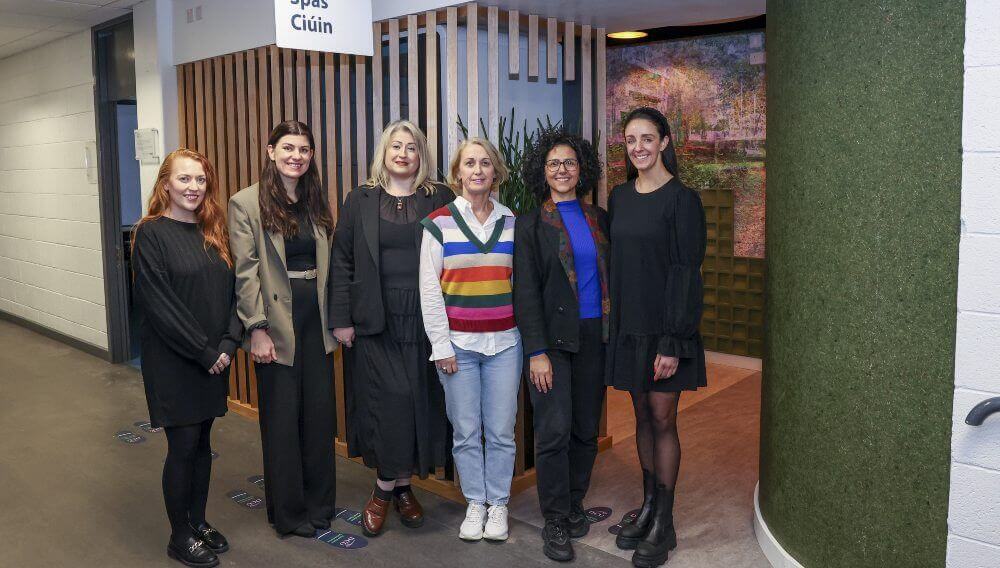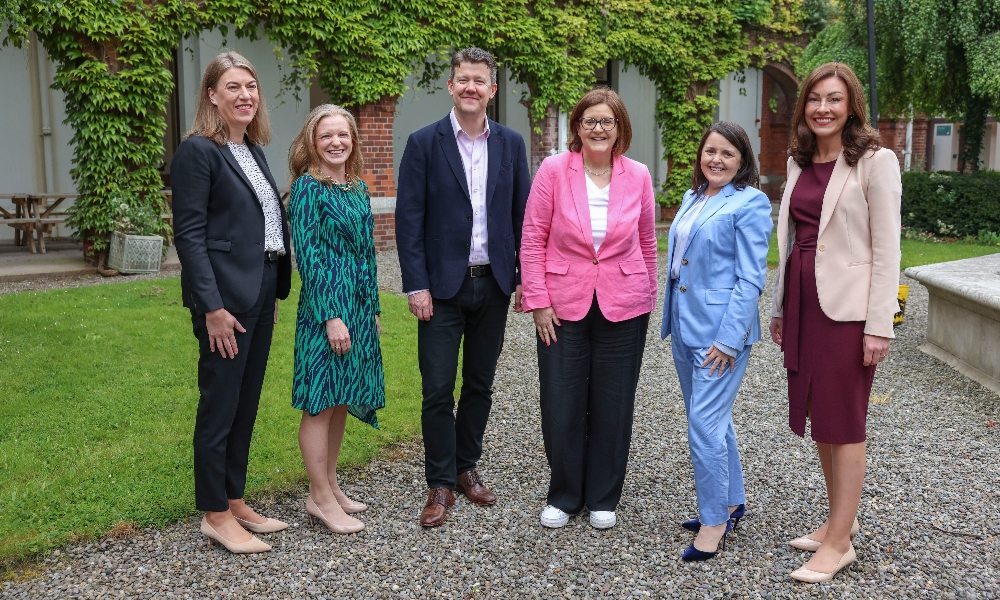Podcast Ep 228: Auticon Ireland CEO Yvonne Brewer on how Irish workplaces are beginning to embrace neurodiversity and reap the rewards.
Creating a neuroinclusive working environment isn’t just good for the individual, it’s good for everyone.
We talk to Yvonne Brewer from Auticon about the organisation’s unique business model of delivering complex IT projects by harnessing the exceptional talents and skills that neurodivergent people have to offer.
“People are realising neurodiversity can be really good for business. It can be really good for problem-solving, it can be really good for creativity. And lots of companies are embracing that”
Auticon is a social enterprise that helps companies become a destination for neurodivergent talent.
Unleashing the power of neurodiversity
Last year Bank of Ireland partnered with Auticon as part of its ambition to become one of the most neuroinclusive organisations in the country, conducting an in-depth assessment of its policies, practices and employee experience.
Nationally representative research conducted by Red C and commissioned by the Bank revealed that, of those who identified as being neurodivergent and are working, just under half have not disclosed their condition to their employer (48%) and a similar percentage (45%) feel that their workplace is not inclusive.
In the area of policies and practices, just under one in five of all people surveyed (19%) believe that their company’s policies and practices support neurodivergent people. The survey revealed that 9% of the population aged 18+ identify as neurodivergent, half of whom are diagnosed and the other half are self-assessed. This compares to a global average of approximately 15-20%. It is widely understood that there is under-reporting of neurodivergent conditions in both the population and the workplace due to factors including lack of understanding and awareness as well as the risk of stigma.
Among those who identified as neurodivergent the most common conditions are Autism Spectrum Condition (34%), Attention Hyperactivity Disorder (34%), Dyslexia (18%) and Dyspraxia (8%).
Brewer told the ThinkBusiness Podcast how Auticon was established 16 years ago in Germany by Kurt Schöffer, a concerned dad who was anxious for his son who was autistic and wanted to build a better future for him and his career. The organisation has become a global operation.
“We are very based on the model of a classic IT consultancy. We take on full-time consultants and we employ them on a full-time basis. We match them to projects within client organisations.
“The difference about Auticon is that all of our IT consultants are neurodivergent. Another differentiator about Auticon – and it’s our enabling factor – is that we pair our autistic consultants with dedicated job coaches to enable them to succeeed, to perform to their full potential and thrive in the workplace.”
Brewer said that Auticon in turn offers a coaching service to employers also. “That’s the main difference between us and a classical IT consultancy. Essentially we are based on that classic model and we employ neurodivergent adults with expertise in areas such as data science, AI, cybersecurity, quality assurance, testing and DevOps.”
Auticon operates in 15 countries across three continents. Ireland was its15th country it launched with Bank of Ireland in March.
“Our neuroinclusion services were born out of more than 16 years’ experience of hiring, training, retaining and employing neurodivergent people.
She said the Bank is very committed to its neuroinclusive policies, particularly from an ESG (environment, social and governance) standpoint.
“We worked with Bank of Ireland in terms of a maturity assessment to find out where the gaps were and what a strategy could look like and then plan, monitor and report on progress.
“It’s not about us, it’s all about the client in terms of where they want to go. It’s about the stage that they’re at and planning a journey with them and rolling out the services that we offer and the lived experience.”
It is about your employees and your customers
To many people the subject of neurodiversity can feel like a relatively new topic, despite the fact that the condition itself is not. “Awareness is still growing,” Brewer agreed. “The numbers are growing and they are set to continue to grow. If you look at the research that’s out there that 15% to 20% of the global population are neurodivergent, we are all working with neurodivergent people in businesses whether we know it or not.
“There are a lot of neurodivergent people out there that either suspect they are neurodivergent or don’t know it yet. There are obviously mechanisms out there for children to be assessed and get diagnosis across the range of neurodivergent conditions and for adults as well.”
She said that neurodiversity is becoming more common as more people are diagnosed and with that awareness is growing, especially among business owners.
“Sometimes it is a case that they know they have neurodivergent people and also knowing that if up to 20% of the population are neurodiverse then that means their employees and their customers are likely to be.
“They are saying ‘if I have neurodivergent employees I want to support them to the best of my ability and to thrive. Some businesses want to attract and retain neurodivergent people and are putting the policies and practices in place to support them.”
Brewer said that Gen Z workers, whether diagnosed or not, also self-identify as neurodivergent and want to see businesses put in place inclusivity policies that reflect that.
Not only that, but neurodiverse employees also can bring with them superpowers in terms of focus, for example.
“For a while it has all been about pay gaps and gender gaps. But knowledge of neurodiversity is something that is growing within the workplace and people are realising neurodiversity can be really good for business. It can be really good for problem-solving, it can be really good for creativity. And lots of companies are embracing that.”
-
Bank of Ireland is welcoming new customers every day – funding investments, working capital and expansions across multiple sectors. To learn more, click here
-
Listen to the ThinkBusiness Podcast for business insights and inspiration. All episodes are here. You can also listen to the Podcast on:
-
Spotify
-
SoundCloud
-
Apple





